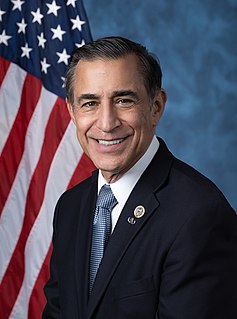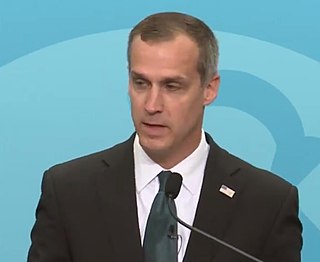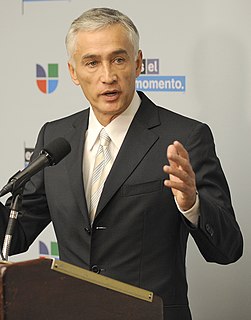A Quote by Douglas R. Oberhelman
Why is Caterpillar bad if we create a new job in India or China to receive U.S. exports? It makes no sense to me. We want to drive all the exports we can from the United States. We want to concentrate on all those consumers, outside contractors, customers outside the United States that we possibly can.
Related Quotes
Venezuela is independent. It's diversifying its exports to a limited extent, instead of just being dependent on exports to the United States. And it's initiating moves toward Latin American integration and independence. It's what they call a Bolivarian alternative and the United States doesn't like any of that.
Of course, the UK is a significant economy that makes up a quarter of American exports to the EU, more than 50 percent of our exports in certain sectors and over 25 percent of the government procurement opportunities we have in Europe. Brexit reduces the size of the TTIP deal for the United States, and there will need to be an adjustment of expectations accordingly, but Brexit underscores the value of reaching an agreement at this critical moment in the evolution of Europe.
Immigration is the issue that tells us who is with us and who is against us; there's no question about it. And it's very simple to understand why - half of all Latinos over 18 years of age were born outside the United States. It really makes no sense to attack them and criticize them if you want their vote.
I think that [Donald] Trump is brilliant to raise this issue. When my son, Gabriel, and his wife, Deb, was pregnant, I said, You got to come home. I want my grandson to be president of the United States. He has to be born in the United States.Now, a child of a citizen of the United States born abroad or born wheresoever is a citizen if that's - he or she so chooses. So there's no doubt but that Ted Cruz is a citizen of the United States.
The vast Pacific Ocean has ample space for China and the United States. We welcome a constructive role by the United States in promoting peace, stability and prosperity in the region. We also hope that the United States will fully respect and accommodate the major interests and legitimate concerns of Asia-Pacific countries.



































